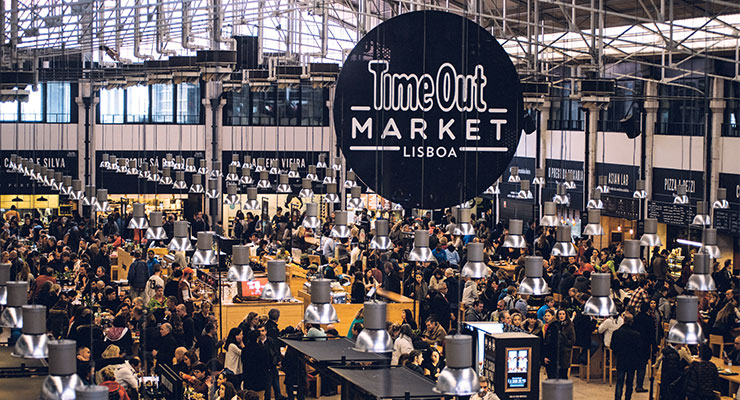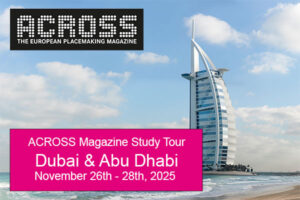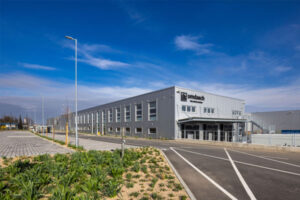ACROSS: Initially a media company, you created the Tome Out Market concept on 2014 and started a food hall revolution. What is at the heart of your concept?
SANDY HAYEK: We started with our first food hall in Lisbon in 2014. Today, we are a leading food hall brand that represents and highlights the best of the city. This clearly goes beyond food – it is a food and cultural market. Time Out Market is about the space; it’s about activating our markets and representing the city’s culture. It goes hand in hand throughout the entire aspect of the concept, including the design. Today, we have six operating markets: Lisbon, Boston, New York, Chicago, Montreal, and Dubai. We also have nine sites in development: We are close to opening markets in Cape Town and Porto. Barcelona, Vancouver, and Bahrain will follow next year, and Prague, Abu Dhabi, Osaka, and Riyadh will follow at a later point in time. We also have a few more exciting markets in negotiation, which I cannot mention yet.
ACROSS: How was the Time Out concept evolved since the opening in Lisbon in 2014?
ANA ALCOBIA: Though change and growth is part of the process, our unique selling point has ultimately remained the same: It’s about gathering all of the experiences people love in each city at one location – we bring the best of the city together under one roof. I was part of the opening team in Lisbon, and I’m doing the same things right now in Porto and Barcelona. Providing new content on a daily and weekly basis and focusing on local activities, companies, tenders, agencies, and teams is unique. It is essential that the locals feel that their cities are well represented. A significant measure of success is whether or not they are proud of what they see inside Time Out Markets. That is the same level of commitment that we, as a media company, have followed with our Time Out publications for decades and how we manage our websites and social media nowadays.
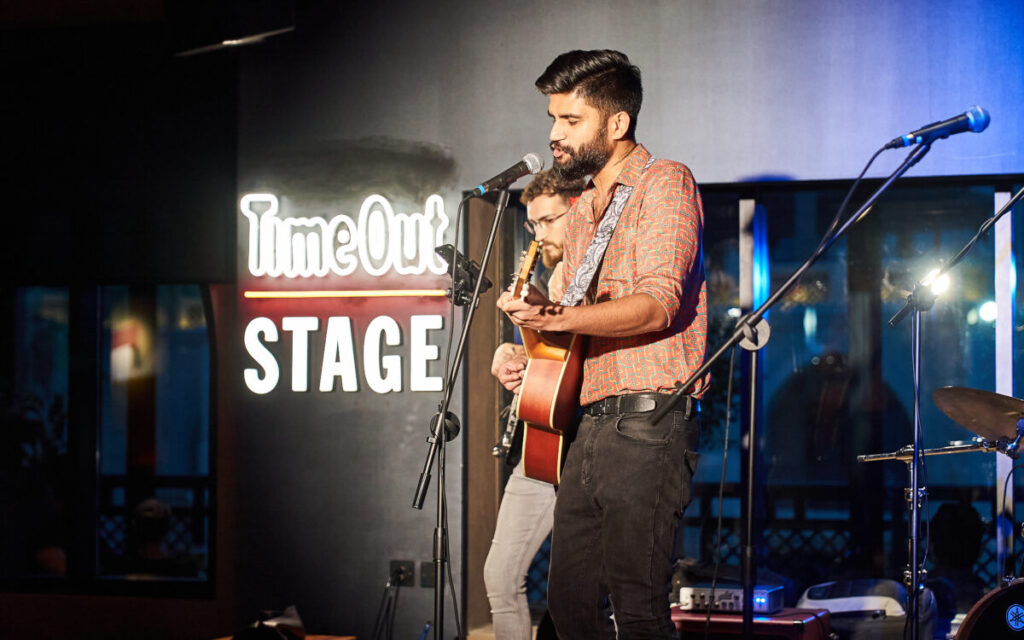
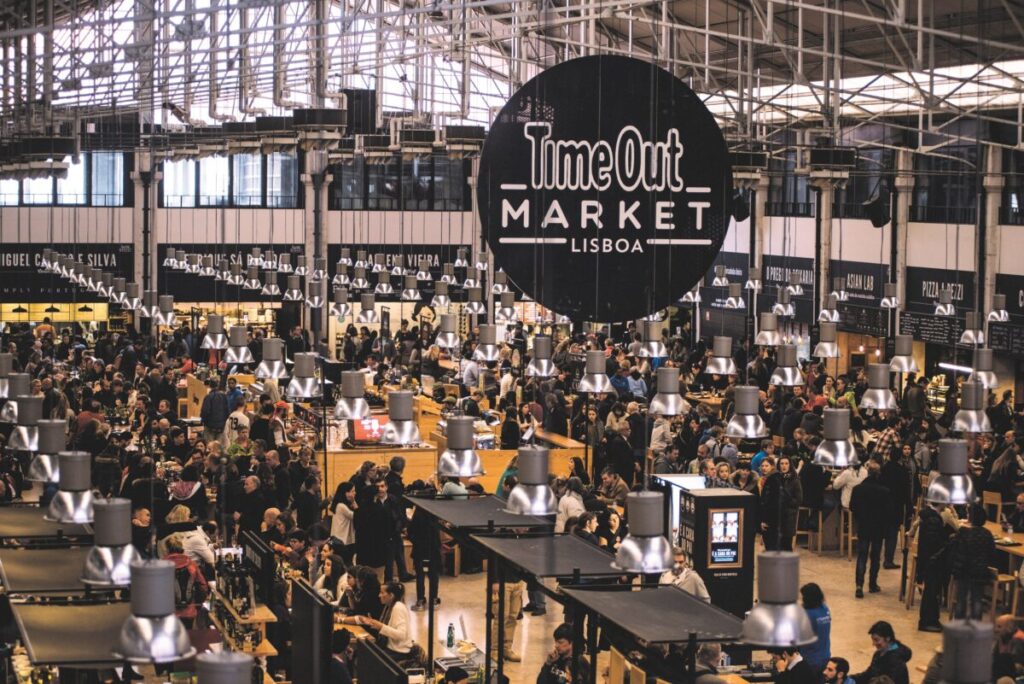
ACROSS: You’re opening locations all over the world. What criteria do you have in terms of location selection?
HAYEK: First of all, we look at the basic structure of every concept: the existing footfall, population density, the actual food scene of a given city, and the potential of that city. The building must be a heritage or an interesting building in some way or another, providing the location with many stories that can be integrated into the concept. That’s what done at the outset. Then, we dig a bit deeper to understand the culture and the food scene. Is it mature enough to fill the market with what we want to offer there? Demographics have a significant impact on our decisions. What type of people live in the area? Post-COVID-19 recovery has recently become an important indicator for us. Our relationship with the developer of the project is another crucial criterion. We must have the same synergies in terms of who we are and what our objective is. Are the right elements being supported in order to get the project off the ground? Ultimately, it’s about creating a unique cultural and culinary experience.
ACROSS: How are the cities and the municipalities involved?
HAYEK: We maintain good relationships with our local editorial teams. Our global reach ensures that we have an incredible network of people and partners who are very well connected on the ground and can refer us to the right sources. We also work very closely with government entities and tourist boards. Not only do we look for the cities that are the most exciting at the moment, but we also search for up-and-coming cities. Such local insight is important when it comes to making a decision on a particular city. Any decision made on a location is based on all of the data metrics we look at, especially in relation to the surrounding area and our local teams’ predictions of where things are headed.
ACROSS: What markets are you particularly interested in?
HAYEK: We are currently discussing some locations, but I can’t name them yet. Cape Town, which opens in November, is a perfect example of what we are looking for. It is in itself a very unique city with a lot of potential. For example, the Michelin Guide has not yet explored the gastronomic scene. There is a list of the top 50 emerging chefs, but there are not enough opportunities for them to make their marks internationally. We can be the first to put these fantastic chefs on the radar and help Cape Town’s gastronomic scene flourish. This is a once-in-a-lifetime opportunity, and we have a stellar lineup for the opening.
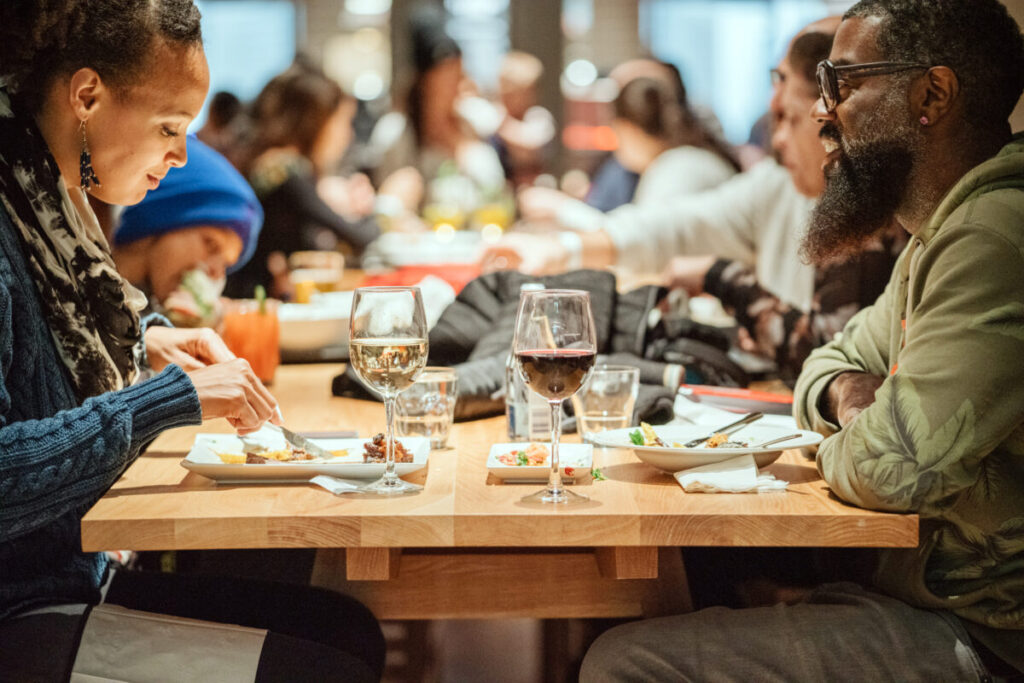
/// credit: Time Out Market
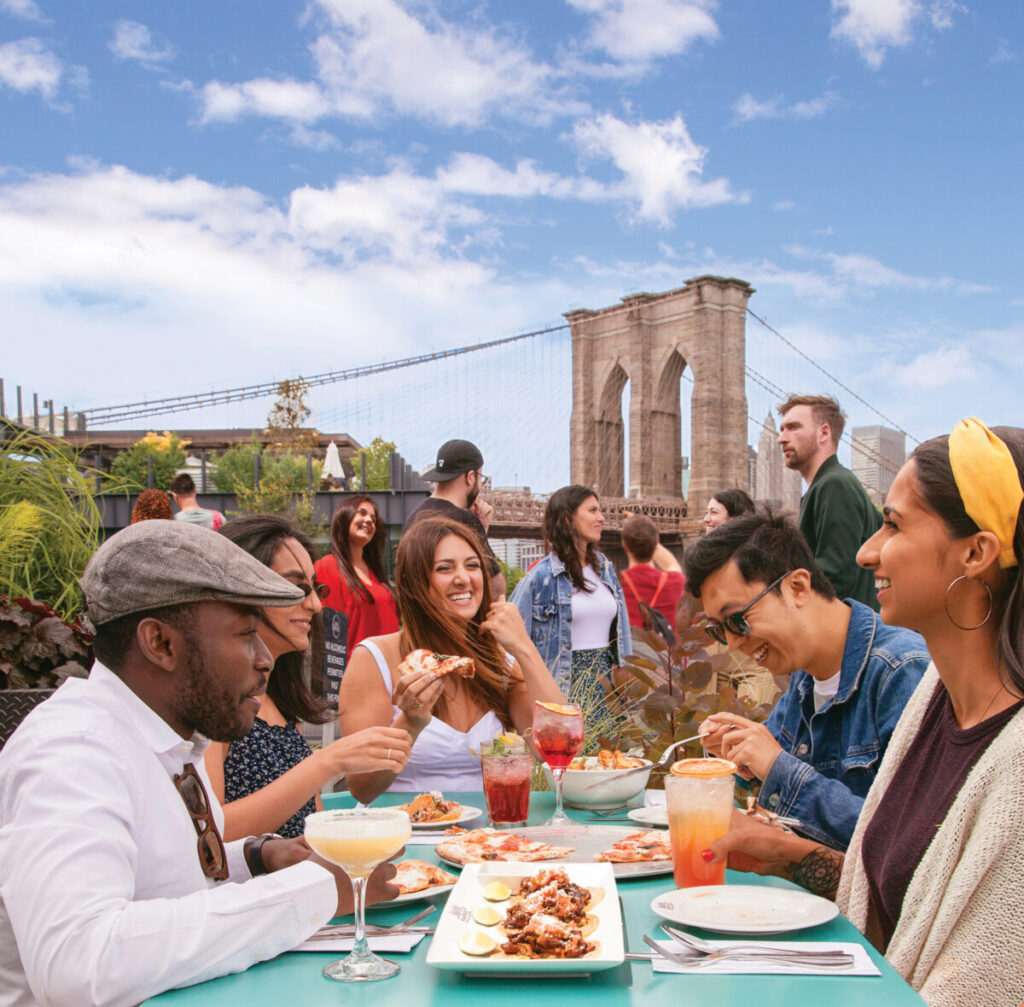
ACROSS: How do you select the restaurants?
ALCOBIA: We already know the city and its gastronomic scene through our media, which includes a global network of specialist journalists on the ground. The key is to find out which restaurants the locals want to see combined in one place. Our Our experts on the media side are able to tell us exactly what the perfect mix is for each city. Of course, we follow a certain structure and try to include a city’s classics. However, the surprising and unique thing about our markets is that we always try to come up with concepts that bring together restaurants that you never would have thought would be in the same place. Time Out Market knows exactly which classic restaurants will receive a Michelin star in two or three years, and places it next to a restaurant that doesn’t have a “classic” chef, but a long line of locals waiting outside the restaurant every day. We can transform a regular food hall into something much more than that – it’s a great experience. It is content that people want to share.
ACROSS: What is the difference between the outpost at Time Out Market and the original venue?
HAYEK: They have to bring their names along with their DNA. They need to provide the same feeling that exists at their original locations. Some will have to adapt their offers, because they will be aimed at more people with a different service infrastructure. Having said that, they have to come to the table with what they were chosen for, and they were selected because they have track records at their original locations. We try to provide offers that people are used to in a given city. That includes chefs who don’t necessarily need a brick-and-mortar establishment, but they may have a story to tell and be influential in the city. In Porto, for example, we signed a chef who closed her restaurant but will reopen with us, which means there are a lot of people in the city who already love this chef and her food.
ACROSS: What do you expect from the restaurants?
ALCOBIA: We expect the highest quality. Restaurants must focus on exactly what they were invited to do. Let’s say you’re a fantastic chef. We generally don’t want to see you making burgers, but what you’re known for. We also value long-term relationships. In Lisbon, there are some concessionaires who have been there from the beginning. A concept like Time Out Market has to focus on more than sales quotas. That’s the big difference between us and the other real estate concepts with food halls. A Mc Donald’s or a Burger King would drive sales, but that’s not what we’re about – we want to provide a different experience. We want people to learn and discover, and our concessionaires are in line with that goal – and as a result we drive growth together. We want people to learn and discover, and our concessionaires are in line with that goal.
HAYEK: We do not necessarily call it a lease with our concessions. It’s based on a completely different concept, where we pull together to create a community experience. A food hall is more than just a big space where you open store after store.
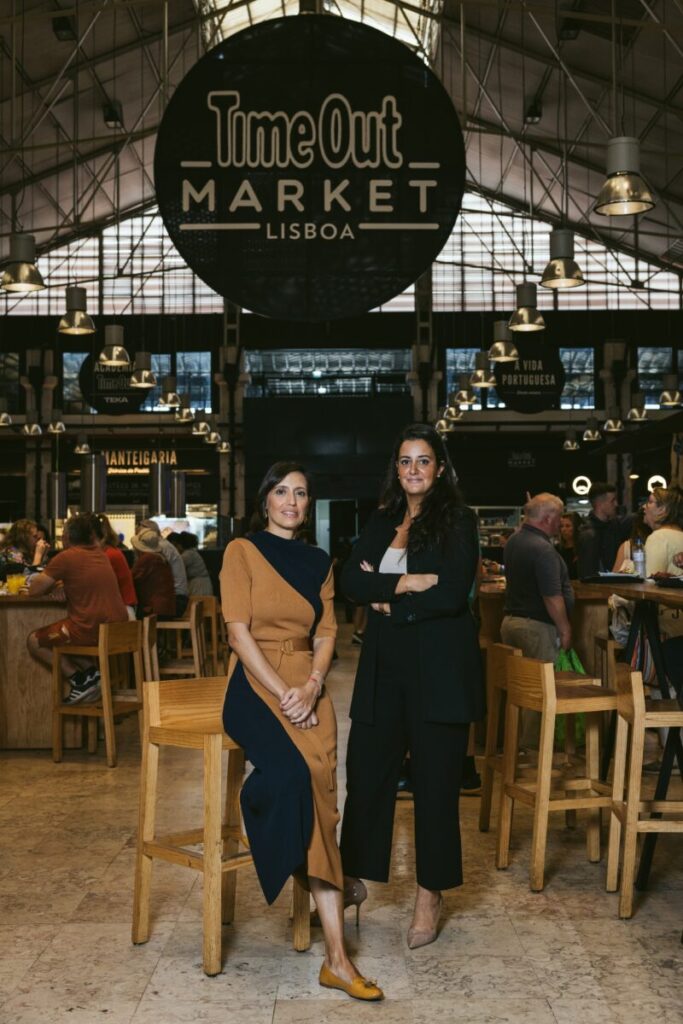
Ana Alcobia and Sandy Hayek
Ana Alcobia, VP Iberia at Time Out Market and Sandy Hayek, CEO of Time Out Market.

